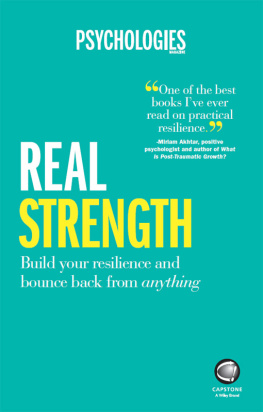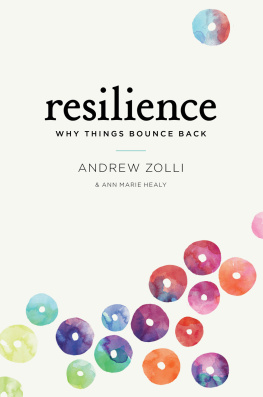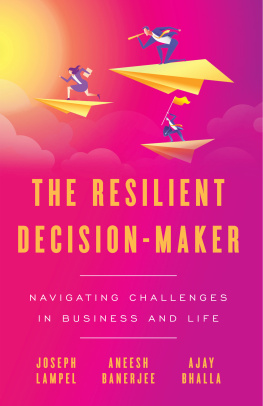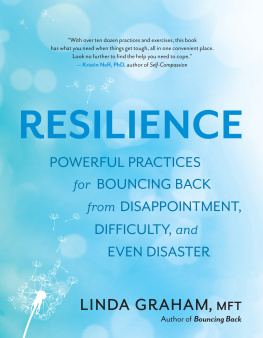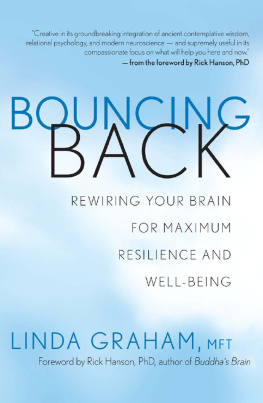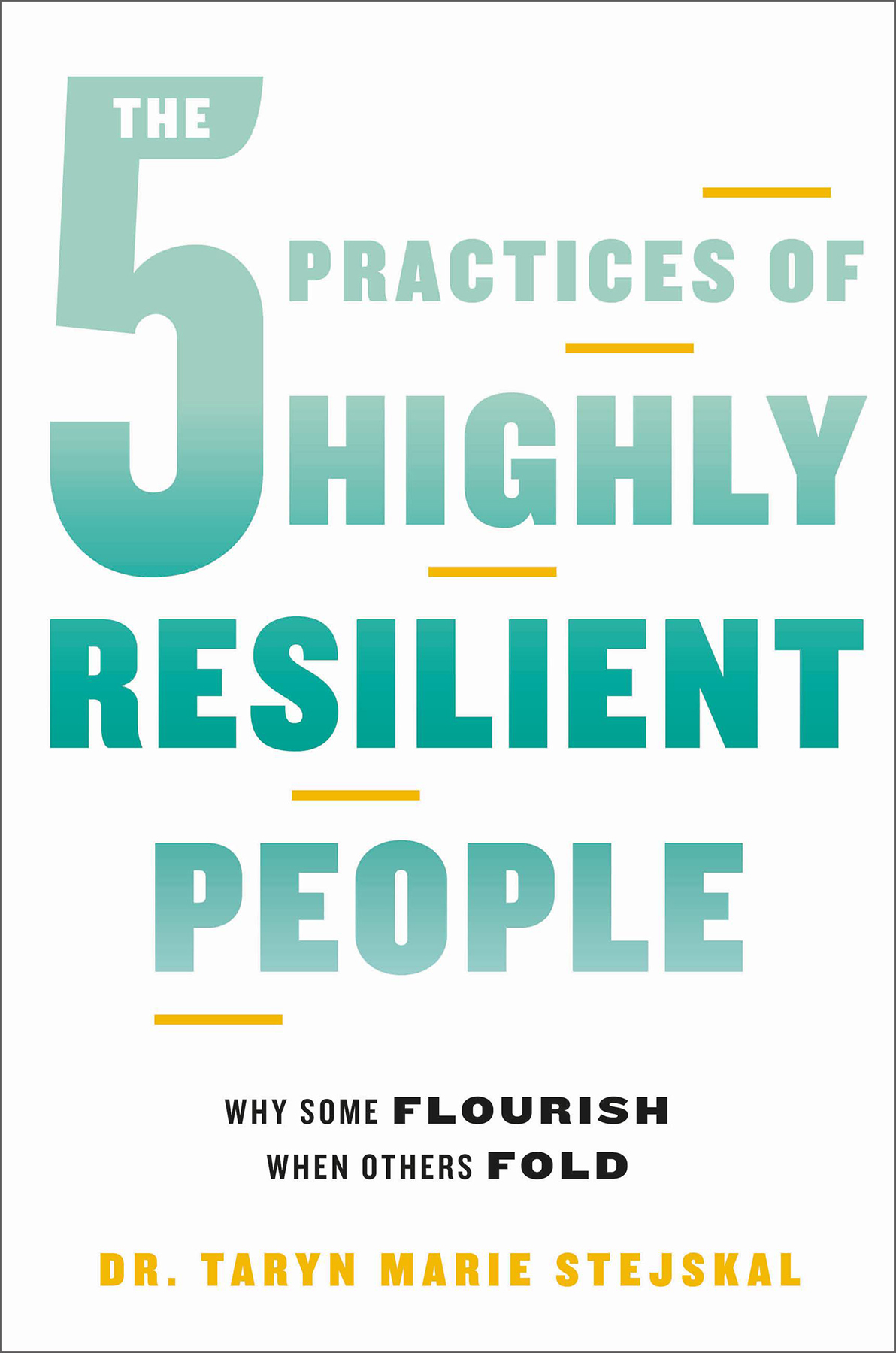
Copyright 2023 by Taryn Marie Stejskal, Ph.D.
Cover design by Terri Sirma
Cover image: Ginkgo leaf ilonitta/Shutterstock
Cover copyright 2023 by Hachette Book Group, Inc.
Hachette Book Group supports the right to free expression and the value of copyright. The purpose of copyright is to encourage writers and artists to produce the creative works that enrich our culture.
The scanning, uploading, and distribution of this book without permission is a theft of the authors intellectual property. If you would like permission to use material from the book (other than for review purposes), please contact permissions@hbgusa.com. Thank you for your support of the authors rights.
Hachette Go, an imprint of Hachette Books
Hachette Book Group
1290 Avenue of the Americas
New York, NY 10104
HachetteGo.com
Facebook.com/HachetteGo
Instagram.com/HachetteGo
First Edition: April 2023
Hachette Books is a division of Hachette Book Group, Inc.
The Hachette Go and Hachette Books name and logos are trademarks of Hachette Book Group, Inc.
The Hachette Speakers Bureau provides a wide range of authors for speaking events. To find out more, go to hachettespeakersbureau.com or email HachetteSpeakers@hbgusa.com
Hachette Go books may be purchased in bulk for business, educational, or promotional use. For information, please contact your local bookseller or Hachette Book Group Special Markets Department at special.markets@hbgusa.com.
The publisher is not responsible for websites (or their content) that are not owned by the publisher.
Library of Congress Cataloging-in-Publication Data has been applied for.
ISBNs: 978-0-306-83161-4 (hardcover); 978-0-306-83163-8 (ebook)
E3-20230214-JV-NF-ORI
For the people who helped me understand resilience: mothers in rural Maryland, survivors of neurological injuries and their family members, along with every person I had the honor to interview. Thank you for trusting me and teaching me.
For all of us, remember to rest, because rest is important. Then, keep going.
With the significant challenges weve all encountered during the past several years, the need for and power of resilience has become an immense point of interest. Many of us are tired of talking about the pandemic, and although its impact continues, our day-to-day experiences are compounded by significant social change, political division, gun violence and mass shootings, unpredictable and extreme weather, an enhanced need for support for mental health and well-being, and general unrest.
Have you felt an increase in feelings like uneasiness, stress, strain, or sadness? I certainly have. The good news is, if you have, youre not alone. There has been an uptick in emotions that feel negative, gloomy, and pessimistic. Many people think its directly related to the pandemic, but it isnt. The pandemic accelerated this trend, but its not solely responsible for our feelings of frustration, unhappiness, and worry. The experience of emotions that feel negative have been on the rise for over a decade. Long before the pandemic showed up.
Its no surprise so many feel this way. We are all searching for guidance about how to adjust to so much change and uncertainty, to keep functioning. We ask ourselves and others, How do I make sense of this? How do I process everything that is happening when it all seems so overwhelming? How do I lead my people? How do I parent my children? How do we create a sense of normalcy when nothing feels normal? What does normal mean, anyway? How do I sustain myself when life so often feels unsustainable?
Being resilient is more important now than ever.
Resilience is much more than enduring adversity and returning to life as it was before. Many aspects of human development are additive tools, such as shifting our mind-set or learning breathing techniques. Yet, resilience is a multiplier. People that demonstrate greater resilience enhance themselves and those around them, their families, teams, and communities. When you increase your resilience, you multiply the development and growth of those around you by role modeling how to solve problems, navigate challenges, and reemerge after setbacks, and through your actions, you teach others how to do that same.
Resilience is not a special skill you need to acquire. Resilience isnt something you go out and find, because by virtue of facing challenge, resilience has already found you. Youre already resilient. Think about it. Youve survived every loss, hardship, disappointment, and rejection youve ever faced. And youre still here. How? Because resilience has been the fabric of your human existence, your essence since your conception. This book wont teach you to be resilient; itll teach you the key practices that will allow you to harness and amplify your resilience to an even greater degree.
Some people tell me that they dream of a day when they will never have to be resilient again. They feel exhausted by the efforts required to be resilient. I, too, have reached the edge of my mental, physical, and emotional capacity. But not because of resilience. The experience of facing a continual onslaught of challenge, change, and complexity is stressful. The circumstances of processing war, significant changes in governmental laws and access to health care, along with addressing persisting inequities and social justice, to name a few, are overwhelming, to say the least. Its not resiliences fault that we feel this way. Resilience isnt exhausting or excruciating. Resilience is the treatment for what ails you, not the problem. Challenge isnt going away. So, youre likely going to get to demonstrate your resilience for years to come. The Five Practices of Highly Resilient People is the playbook that allows you to tap into your resilience to a greater degree, the skills that guard against stress, exhaustion, and burnout. These practices and tools arent detractors that derail your ability to cope. Quite the opposite. Resilience promotes a more positive mind-set and enhances your mental health.
My desire to understand the commonalities that allow us to effectively face challenge, which would lead to The Five Practices of Highly Resilient People two decades later, began while I was in graduate school, and later, as a neuropsychology fellow. After I completed my fellowship, my inquiry continued in private practice, then as a management consultant, along with my experience in corporate leadership development at Nike and Cigna, and today as the chief resilience officer at Resilience Leadership Institute (RLI). My goal was, and still is, to help people effectively address challenges so that they can emerge from adversity empowered and better for their experience.
Maybe youre dealing with the aftereffects of abuse or violence, grieving the loss of a loved one, or looking to rebuild trust and connection in important relationships. Perhaps youre in the throes of burnout, stress, or exhaustion, or realizing you need support for your mental health. Maybe you desire to enhance your confidence and self-esteem, accept yourself, and finally feel worthy.
No matter what your challenges and goals are, my goal is to help you see adversity as an opportunity for growth and expansion. It is often assumed that hard times, such as job loss, illness, or traumatic events, diminish our ability to function, yet while they may slow us down or stop us temporarily, the slowing down or stopping is an important aspect of our healing and resilience process. Challenge is simply a well-disguised occasion for growth. I wrote this book not to teach you to ignore or minimize your experience, but instead to give you the manual to be present with your difficulty and move through tough times, not around or above them. To offer you a blueprint for emerging from adversity enhanced, rather than diminished, with more humility, openness, empathy, wisdom, and joy.




